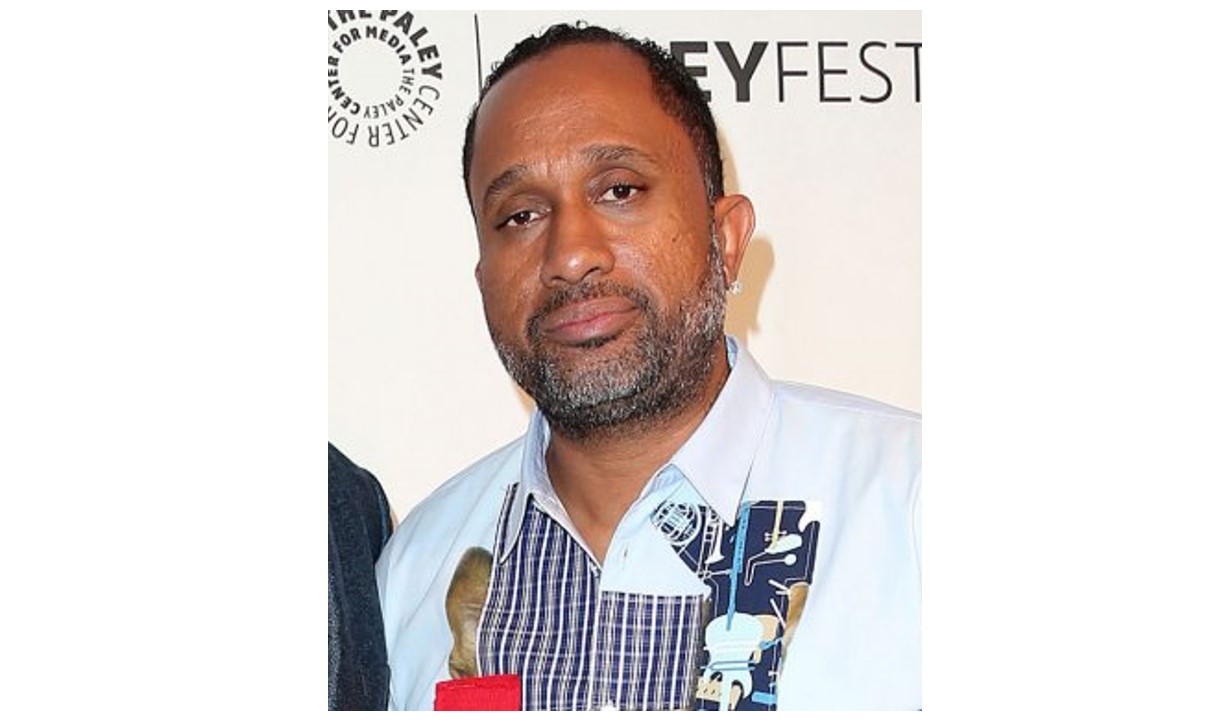“Black-ish” creator Kenya Barris has made no secret of his love for the work of TV legend Norman Lear.
What’s less well known is that Lear, 93, actually spent a day in the “Black-ish” writers room a few months ago.
“It was surreal,” Barris says of that day. “I just sat there saying, ‘Is Norman Lear at the front of my writers’ table pitching stories? This is crazy.’ He was as sharp as anybody else in the room, regardless of his age.”
One of the conversations that Lear kicked off among the writers that day lasted “for weeks,” reports Barris. The topic — how issues of financial insecurity can play out between married people — influenced the April 27 episode, titled “The Johnson Show.”
In the episode, Dre (Anthony Anderson) becomes concerned about possible layoffs where he works. He and Bow (Tracee Ellis Ross) discuss what would happen if only her income — and not his — was carrying the Johnson family, even temporarily. That conversation is constructive, but then Pops (Laurence Fishburne) has a talk with Dre, and in typically blunt Pops fashion, he tells Dre he thinks it would set a bad precedent for Bow’s paycheck to carry the family, even for a little while. The whole situation delves — comedically, of course — into Dre’s assumptions and insecurities about being the family breadwinner.
“For a proud guy like Dre who really saw himself as the main provider of the house,” thinking about relying on his spouse’s income is a scary thought, Barris says. “He starts questioning himself — ‘Who am I within this tableau of my family?’”
As pitched by Lear and explored by the ABC comedy’s writers, these issues are not “contrived” sources of conflict, Barris notes. “It’s really more about how that affects you, in terms of your picture of what your family was going to be.”
“A lot of the way he broke story and approached character was indicative of the way we approach character and story,” Barris says — which is to say, the jokes have to come from the characters’ personalities, histories and quirks.
Barris’ admiration of Lear’s work will kick into high gear later this season. The season finale of “Black-ish,” which is titled “Good-ish Times,” is an extensive homage to the classic ‘70s Lear sitcom about a working-class African-American family in Chicago. (Barris is also working on the script for a “Good Times” movie.)
“He’s beyond an influence for me,” says Barris. “I feel like I am so derivative of Norman Lear and what he was doing and what he was about. It’s hard to even think about being a writer without him having been there. He talked about things. He was talking about real people and real specific character arcs and traits. I really just try to do that today.”
Even though there are obvious socioeconomic differences between the well-to-do Johnsons and the Evans family of Lear’s “Good Times,” for Barris, the connection between the two TV clans is clear.
“That family, in a lot of ways, spoke so heavily to what a lot of black families related to,” Barris says. “It still has resonance today. Even though they were living in the projects, and that’s not what the Johnsons are doing, the specificity of [‘Good Times’] speaks to this family — and a lot of families, black or white — today.”
As Lear’s show did, “Black-ish” has used comedy and well-constructed family dynamics to take on big topics and complex social problems. The February episode “Hope,” in which the family talked about the effects of police brutality on African-Americans, was very much in the Lear tradition, and even though a few months have passed since it aired, Barris says he’s still surprised by how well it was received.
“I am very, very pleased with how it went,” Barris says. “I definitely feel like it was bigger than I ever would have imagined. I couldn’t see that coming. Even for me, in editing, it affected me in ways I did not expect. Just to get a chance to do a piece of television that feels like it mattered — it was such an amazing opportunity.”
Source: Variety


